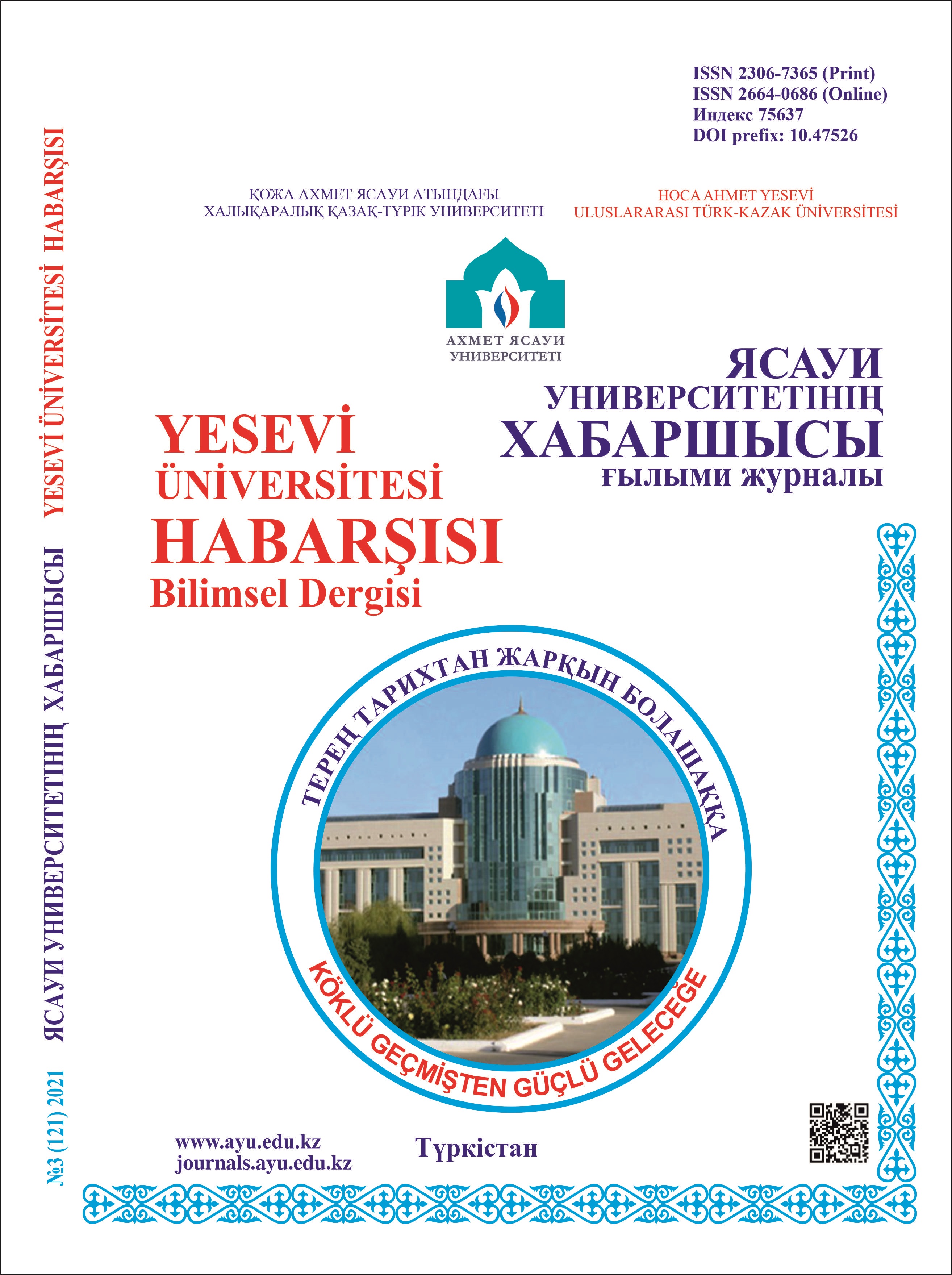Особенности реализации программы педагогического референдариата на базе площадки INTERN
187 121
Ключевые слова:
педагогический референдариат, программы post-bac, профессиональная адаптация, коллаборации педагогов, платформа INTERN.Аннотация
Статья посвящена описанию создания интерактивной платформы INTERN, которая рассматривается как коммуникативно-интеллектуальный ресурс, интегрирующий в себе различного рода составляющие, как возможность межпартнерского взаимодействия, в том числе с привлечением заинтересованных органов и бизнес-структур, и будет направлена на построение эффективной коммуникации и обмена опытом, сотрудничества, партнерства и кооперации, что, в свою очередь, будет способствовать формированию транспарентной научной и образовательной среды по обмену знаниями, компетенциями, расширению профессиональных и межвузовских связей с имеющимися партнерами и коллаборациями педагогов. В статье приведена схематическая структура инновационной платформы INTERN, включающая различные механизмы, позволяющие реализовать коммуникативную резистенцию программы.
Целью Программы является разработка и внедрение нового формата подготовки молодых педагогов через педагогический референдиат, что позволит выйти на новое опережающее качество этой подготовки; увеличить количество вовлеченных в процесс заинтересованных субъектов т.е. сделать его транспаретным и перераспределить ресурсы для усиления практической направленности обучения; создать новый вектор взаимодействия «школа – вуз»; привлечь будущих абитуриентов в университет на учительские образовательные программы, что, в конечном счете, будет способствовать повышению конкурентоспособности и востребованности учительской профессии. Целевой аудиторией нашей программы являются педагоги со стажем педагогической деятельности от 0 до 3 лет.
Библиографические ссылки
PISA-2018 Отчет по результатам международного исследования. [Electronic resource]. URL: https://fioco.ru/Media/Default/Documents/%D0%9C%D0%A1%D0%98/PISA2018%D0%A0%D0%A4_%D0%9A%D1%80%D0%B0%D1%82%D0%BA%D0%B8%D0%B9%20%D0%BE%D1%82%D1%87%D0%B5%D1%82.pdf (date of access: 20.05.2023)
Romm I. et al. Educating Young Educators: A Pedagogical Internship for Undergraduate Teaching Assistants // CBE–Life Science Education. – 2010. – Т. 9. – №. 2. – С. 80–86.
Профессии будущего и слияние вузов – большое интервью министра науки и высшего образования [Electronic resource]. URL: https://www.zakon.kz/6026943-novye-professii-i-sliianie-vuzov-interviu-ministra-nauki-i-vysshego-obrazovaniia.html?ysclid=la42drnycx973650969 (date of access: 20.05.2023)
Русанов В.П., Какиева Л.Х. Педагогическая интернатура: перспективы ее становления в Казахстане // Вестник Академии Педагогических Наук Казахстана. – 2016. – №3 (71). – С. 36–43.
Абиль Р.Е., Жумаканова У.С. Проблемы модернизации педагогического образования в Республике Казахстан // Молодой ученый. – 2019. – №11 (249). – С. 226–228.
Минюрова С.А., Леоненко Н.О. Педагогическая интернатура как инновационный проект вуза // Высшее образование. – 2015. – №10. – С. 37–45.
Рябов В.В. Роль педагогической интернатуры в подготовке педагогических кадров: преимущества, проблемы // Вестник образования России. – 2010. – №2. – С. 48–53.
Furaeva T.V. Internship as an alternative form of experiential learning bachelors of social sphere // International Journal of Applied and fundamental research. – 2014. – №7. – Р. 105–109.
Turchyn A., et al. The Dual Model of Practical Professional and Pedagogical Training of Future Teachers for Vocational Schools in Germany // Journal of Education Culture and Society. – 2022. – Т. 13. – No.2. – Р. 713–728.
Bakhmat N. et al. Development and testing new content and forms of organization of pedagogical internship of future primary // Laplage em Revista (International). – 2021. – Vol.7, n. Extra B. – Р. 77–87.
REFERENCES
PISA-2018 Otchet po rezultatam mejdunarodnogo issledovania. [Electronic resource]. URL: https://fioco.ru/Media/Default/Documents/%D0%9C%D0%A1%D0%98/PISA2018%D0%A0%D0%A4_%D0%9A%D1%80%D0%B0%D1%82%D0%BA%D0%B8%D0%B9%20%D0%BE%D1%82%D1%87%D0%B5%D1%82.pdf (date of access: 20.05.2023)
Romm I. et al. Educating Young Educators: A Pedagogical Internship for Undergraduate Teaching Assistants // CBE–Life Science Education. – 2010. – Т. 9. – №. 2. – С. 80–86.
Professii budushego i slianie vuzov – bolshoe interviu ministra nauki i vysshego obrazovania. [Electronic resource]. URL: https://www.zakon.kz/6026943-novye-professii-i-sliianie-vuzov-interviu-ministra-nauki-i-vysshego-obrazovaniia.html?ysclid=la42drnycx973650969 (date of access: 20.05.2023) [in Russian]
Rusanov V.P., Kakieva L.H. Pedagogicheskaia internatura: perspektivy ee stanovlenia v Kazahstane // Vestnik Akademii Pedagogicheskih Nauk Kazahstana. – 2016. – №3 (71). – S. 36–43. [in Russian]
Abil R.E., Jumakanova U.S. Problemy modernizacii pedagogicheskogo obrazovania v Respublike Kazahstan // Molodoi uchenyi. – 2019. – №11 (249). – S. 226–228. [in Russian]
Miniurova S.A., Leonenko N.O. Pedagogicheskaia internatura kak innovacionnyi proekt vuza // Vysshee obrazovanie. – 2015. – №10. – S. 37–45. [in Russian]
Riabov V.V. Rol pedagogicheskoi internatury v podgotovke pedagogicheskih kadrov: preimushestva, problemy // Vestnik obrazovania Rossii. – 2010. – №2. – S. 48–53. [in Russian]
Furaeva T.V. Internship as an alternative form of experiential learning bachelors of social sphere // International Journal of Applied and fundamental research. – 2014. – №7. – Р. 105–109.
Turchyn A., et al. The Dual Model of Practical Professional and Pedagogical Training of Future Teachers for Vocational Schools in Germany // Journal of Education Culture and Society. – 2022. – Т. 13. – No.2. – Р. 713–728.
Bakhmat N. et al. Development and testing new content and forms of organization of pedagogical internship of future primary // Laplage em Revista (International). – 2021. – Vol.7, n. Extra B. – Р. 77–87.

